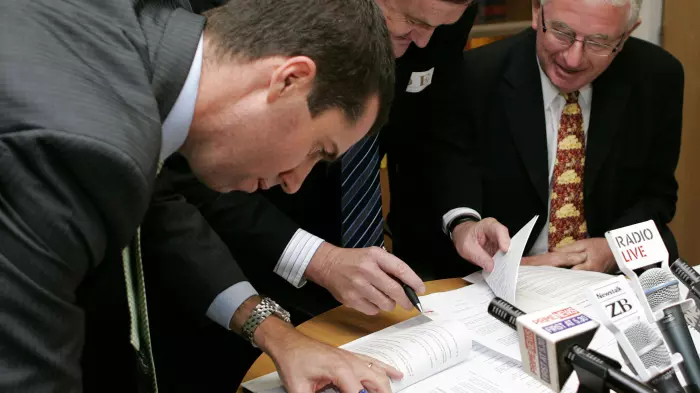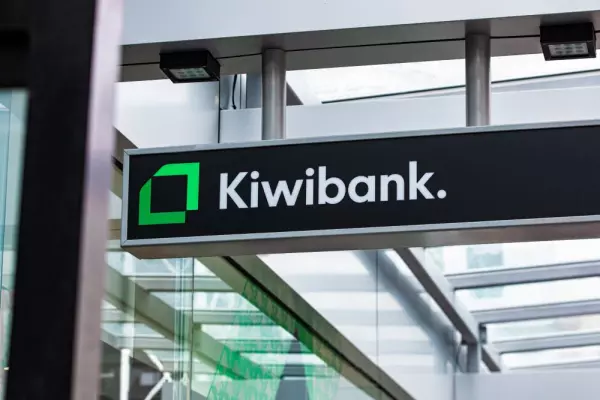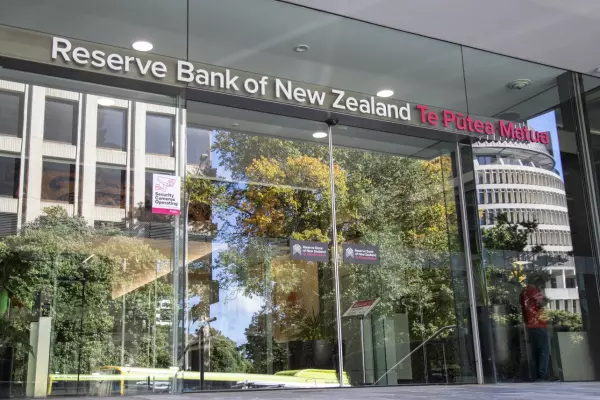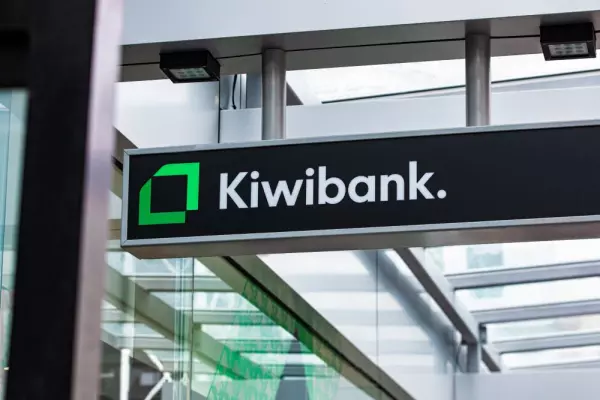BusinessDesk's investment editor, Frances Cook, responds to readers' emails on a weekly basis to answer various questions about money. Below you'll find her expert advice on a subject she's extremely passionate about.
Hi Frances,
Love your work and follow you on social media.
My question is: I am going to start allocating about $100 per week to either invest or make extra payments on my mortgage.
I'm thinking about putting the $$ into my KiwiSaver. I'm 41 and have a growth fund, so not retiring for another 20-plus years. Alternatively, I could accumulate it and make an extra annual payment onto the mortgage, which is currently $288k and before any extra payments is on track to be paid off in less than 10 years.
Which would you suggest is the best option? Invest or pay off the debt first?
Thank you!
J
Hi J,
What a great position to be in. First of all, congratulations on being so close to paying off your mortgage, and having some extra money to put towards your future goals. There aren’t really any bad options here, it’s just a matter of deciding what gets you closer to your goals.
My immediate thought is … why not both?
Paying off the mortgage is, on paper, the smartest decision. Interest rates are likely to keep rising, meaning the mortgage gets more expensive each year. It’s a big cost saving to not have to pay to keep a roof over your head each week. Although, of course, you would still be paying rates, insurance, and something towards maintenance. Still, that’s peanuts compared to what most people spend on their mortgage.
A rough rule of thumb is that the share market gives seven per cent returns per year. However, that’s on average. One year it might be a whopping 15 per cent in your pocket, the year after it might go backwards and be -2. It’s all part of the ride.
Meanwhile, your mortgage costs are somewhat locked in and predictable. After the latest OCR (official cash rate) hike, rates are around 5% to 6%, and when you pay off extra, you can consider that an investment return, because you’re saving yourself future money.
However, there are no fees or taxes that you have to pay on that investment return, so it’s closer to the share market's 7% return than it looks at first blush.
But. The big but here is that numbers are all well and good, but then we have to consider the human factor.
People tend to be super-keen to pay off their mortgage and then, just when they’re nearly there, they upgrade their home. They make it bigger, they add a pool, they move city, whatever, something tends to happen. Life happens!
Sometimes these changes are needed, sometimes they’re a quality of life thing, no judgement here. However, it does mean that they’re stuck paying more mortgage for a bit longer than they planned, and the plans to invest get put off for a few more years.
Investing is most powerful when it’s done over a longer period of time. It gives you time to ride out the ups and downs of the market that I’ve mentioned. It also gives you time to compound your returns, which is incredibly powerful. You make money from your investments, you invest that money again, you have profits making profits. Time is often the biggest factor for getting rich with the least effort.
I’ve done some rough calculations for us to weigh this up. Bear in mind, I don’t have all of your financial information, so I’m doing this with one hand tied behind my back. It’s probably worth you putting in these numbers yourself, to make sure that it’s accurate for your situation.
Using an online mortgage calculator, I put in your remaining $288,000 mortgage and set the deadline to pay it off for 10 years. I used the current one-year mortgage rate of 4.8%. It reckoned your weekly repayment was $698.
Now, if we up that by $100, it says you could pay off your mortgage in eight years and six months instead. Fantastic! Freedom 18 months early.
But what if we split your extra money instead, with $50 on the mortgage, and $50 for KiwiSaver? An extra $50 per week on the mortgage gets you free of it in nine years and three months instead, so nine months earlier.
Meanwhile, let’s have a look at what could happen with your KiwiSaver. It’s in growth, I don’t know who with, but a growth account is usually heavily invested into shares.
The NZ share market has given a raw return of about 10 per cent per year, but then you have to remember things like inflation, taxes, fees. So, I’m going to treat it as a seven per cent return, because that’s most realistic for what you’re likely to get in the hand.
Using a compound interest calculator, if you put in $50 a week from now until you hit 65, that extra money is worth $97,232 by retirement. A lovely $47,575.34 isn’t even the money you put in – it’s compounded returns, or your profits earning profits.
Of course, partway through that, you’ll pay off the mortgage a little earlier, and you might redirect the extra money to your investing. So from year 10, your invested amount goes up to $100 a week anyway. In that case, the grand total is $143,175 by retirement. A whopping $61,734.39 is compounded returns. Nice!
What about the alternatives if you put the entire $100 into KiwiSaver for the next 24 years? That’s an extra $194,464 by retirement, and $95,150.68 of that is compound interest.
Or if you wait nine years to get the mortgage paid off, then start putting the entire amount into KiwiSaver for 15 years instead? You get $100,385 by retirement, and only $32,915.65 is compound interest.
Compare that last option with the more powerful compounded effect of $50 over a longer time. Far more of the final number is compounded returns, so you’re getting more profits for less work. It’s all thanks to the power of time spent in the market.
I hope all of that maths was helpful, rather than confusing. If I made your eyes glaze over, here’s my bottom line of what I’d be doing in your situation. A bob each way, by putting $50 onto both the mortgage and your KiwiSaver. That gives you a balance between a secure home a little earlier, and more money in your pocket come retirement.
Of course, if the results of all that number-crunching made you prefer a different option – go for it! The important thing is figuring out what’s most powerful for getting you the lifestyle you’re after. Like I said, you’re in a good position whatever you choose.
Hi Frances,
I have an 11-year-old and an 8-year-old, both with bank accounts which we have been building up since they were born.
I want to invest their money for them but am unsure if we should open KiwiSaver accounts or a non-KiwiSaver investment account instead. My husband and I have an investment provider already, so are familiar with how it all works.
I worry that with KiwiSaver they won't be able to access the money for university or travel if they wanted to.
Can you advise the pros/cons of each option?
Thanks,
X
Hi X,
You’re right to be thinking of investment options. Assuming that you’re putting this money aside for when they’re adults, whether you consider that to be 18, 21, or 25, that’s at least seven years until they get their mitts on it. Over a longer period of time like that, shares are a great option, whether it’s through KiwiSaver or a fund outside of KiwiSaver.
So, which should you pick?
I’m a big fan of KiwiSaver … once you turn 18. Unfortunately, before then, you miss out on a lot of the benefits that make it worthwhile to lock your money away.
KiwiSaver comes with freebies that make it a no-brainer for most of us, but they’re linked to the tax system, and employment.
You get a government tax break, where they give you 50c for every $1 you put in, up to $1,042. So you can get $521 each year. But it’s a tax break that you only get if you’ve been earning taxable income in NZ as an adult. Under 18? You don’t get it. Boo.
KiwiSaver also has the big benefit of the employer match. Your boss legally has to match your contributions up to three per cent of your income – although some employers voluntarily do more than that, and for that we thank them.
But under 18, even if you have a high school job? The boss doesn’t have to match. Again, some do voluntarily and in that case it’s worth it because it’s like a small pay rise. But if the boss isn’t willing to stump up, nobody will make them, and you lose another major benefit of KiwiSaver.
For the cons, well, you’ve already mentioned the big one. KiwiSaver is locked away until you either buy a house, or retire at 65. Your kids might want to use the nest egg you’re building for them to travel, start a business, or any number of other things that can be useful to a young person. If the money is in KiwiSaver, then it’s no dice.
The good thing about KiwiSaver is that there are lots of rules that make it a pretty secure, good investment. The fund types are relatively simple to understand (conservative, balanced, and growth, as a sliding scale of risk and reward), they usually have a good mix of investments to spread your money and your risk, and the providers are regulated and quality controlled.
The good news? You can have your cake and eat it too.
Most KiwiSaver providers offer the exact same fund, but outside of the KiwiSaver scheme. This means you get the same benefits of a well-diversified, simple investment, but without locking the money away. You can easily compare different KiwiSaver and managed funds through the Sorted Smart Investor tool here. In your position, I would organise by lowest fees first, as some of our KiwiSaver fund providers have shockingly high fees that will eat into your money. Plenty of studies have shown that higher fees don’t give you a better return.
A low-fee fund, that mirrors a KiwiSaver fund but isn’t actually in KiwiSaver, could be a good option for your family to think about. But as soon as the kids turn 18, make sure they sign up to get all the free incentives that make it worthwhile.
Send questions to [email protected] if you want to be featured in the column. Emails should be about 200 words, and we won't publish your name. Unfortunately, Frances is not able to respond to every email received, or offer individual financial advice.
Information in this column is general in nature, and should not be taken as individual financial advice. Frances Cook and BusinessDesk are not responsible for any loss a reader may suffer.















